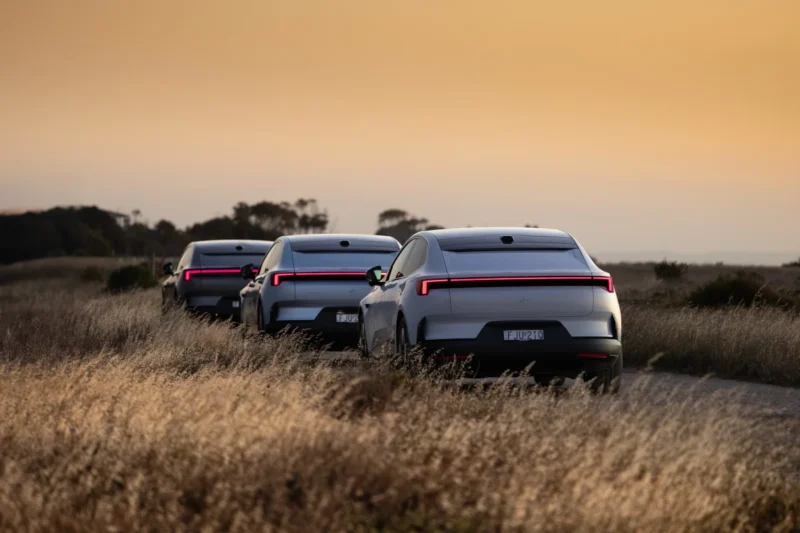The Swedish based all electric car maker Polestar, buoyed by a rebound in sales in Australia and other international markets, has taken aim at Japanese car makers still complaining about the impact of Australia’s modest vehicle emissions standards.
Polestar EV sales in Australia have jumped 23 per cent so far in 2025, compared to last year, mostly due to a positive response to the new Polestar 4, and overnight announced a 51 per cent lift in global sales to 30,319 cars in the first six months of the year.
The company has done reasonably well with the Polestar 4, delivering 676 vehicles in Australia so far in 2025, ranking it number 14 in EV sales, according to The Driven’s comprehensive data. All of the 13 vehicles ranked above it are priced below, and in most cases well below, its base offer of $78,500.
Polestar’s Australian boss Scott Maynard says he is happy with that result, particularly given that it is supported by private buyers, and not the fleet operators that propped up its sales in previous years.
“The roll out of the retail network has definitely played a part in that … and that seems to be all coming together quite nicely for us,” he told a media roundtable on Thursday. Maynard expects similarly strong results in the second half.
Polestar has been struggling in the past year, but is now feeling more optimistic about the future, and plans to release a mid size SUV, the Polestar 7, later this year. It will be pitched between the Polestar 2 and Polestar 4 in pricing, unlike the new Polestar 5 which will be pitched at the top end of the market.
“We’ve delivered another strong quarter of growth, in increasingly challenging market and geopolitical conditions,” Polestar CEO Michael Lohscheller said in a statement. “(The) volume growth is a clear sign that our retail expansion is delivering and that more customers are choosing Polestar.”
In Australia, the company will also be boosted by the sale of credits from the new National Vehicle Emission Scheme, introduced this year and which took effect – for practical purposes – from July 1.
“It would make sense to sell those credits out for no other reason to make good on the intention of that legislation, to make those manufacturers that don’t embrace NVES pay for it,” Maynard said.
Polestar and Tesla have both left the main car lobby, the FCAI, because of the split over the new NVES, and Maynard took issue with Japanese car maker Mitsubishi, which is still complaining loudly about the scheme.
“If most of these brands are able to service these [emissions] requirements in all of the other markets that they can be in, there’s no real reason why they can’t do it here,” Maynard said.
“I don’t think they need (to make) the sort of scaremongering comments that they’ve made.”

Giles Parkinson is founder and editor of The Driven, and also edits and founded the Renew Economy and One Step Off The Grid web sites. He has been a journalist for nearly 40 years, is a former business and deputy editor of the Australian Financial Review, and owns a Tesla Model 3.


